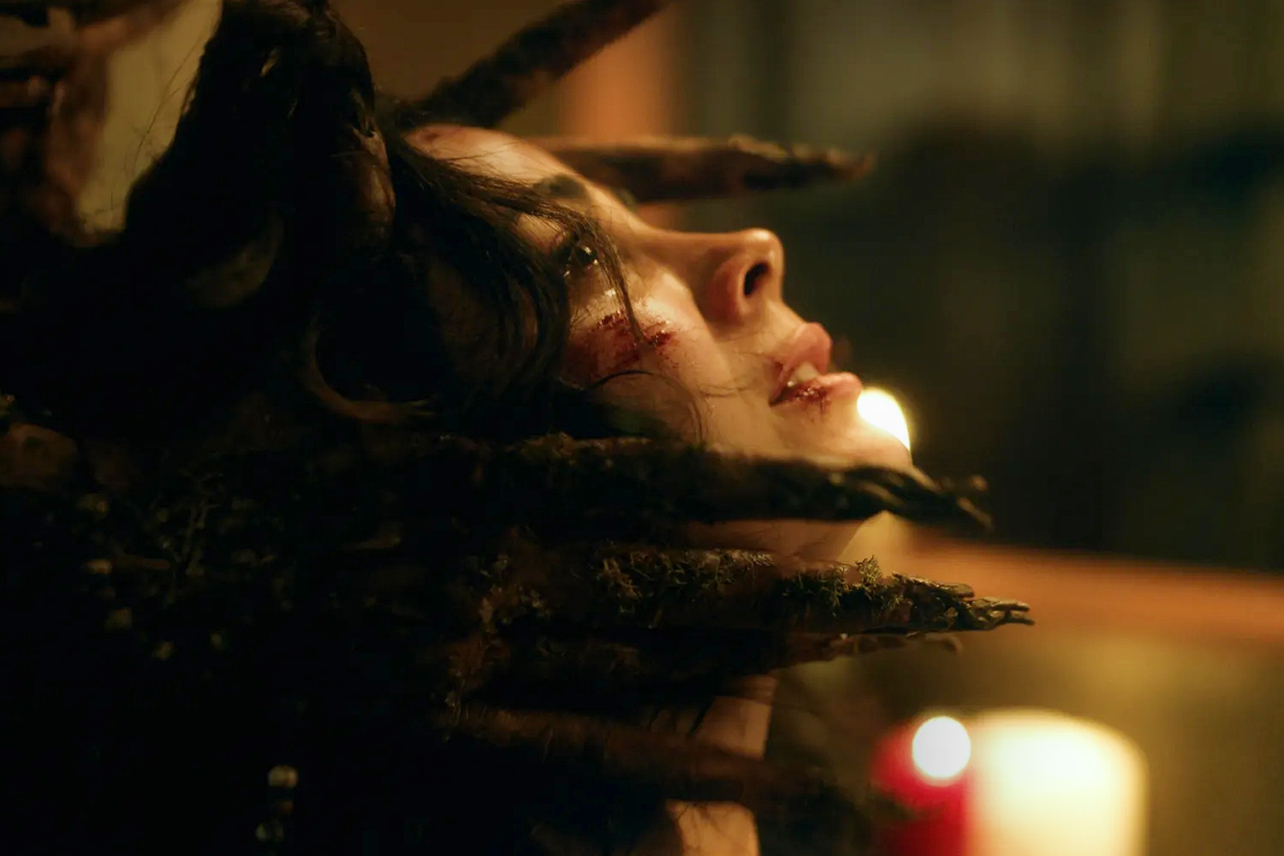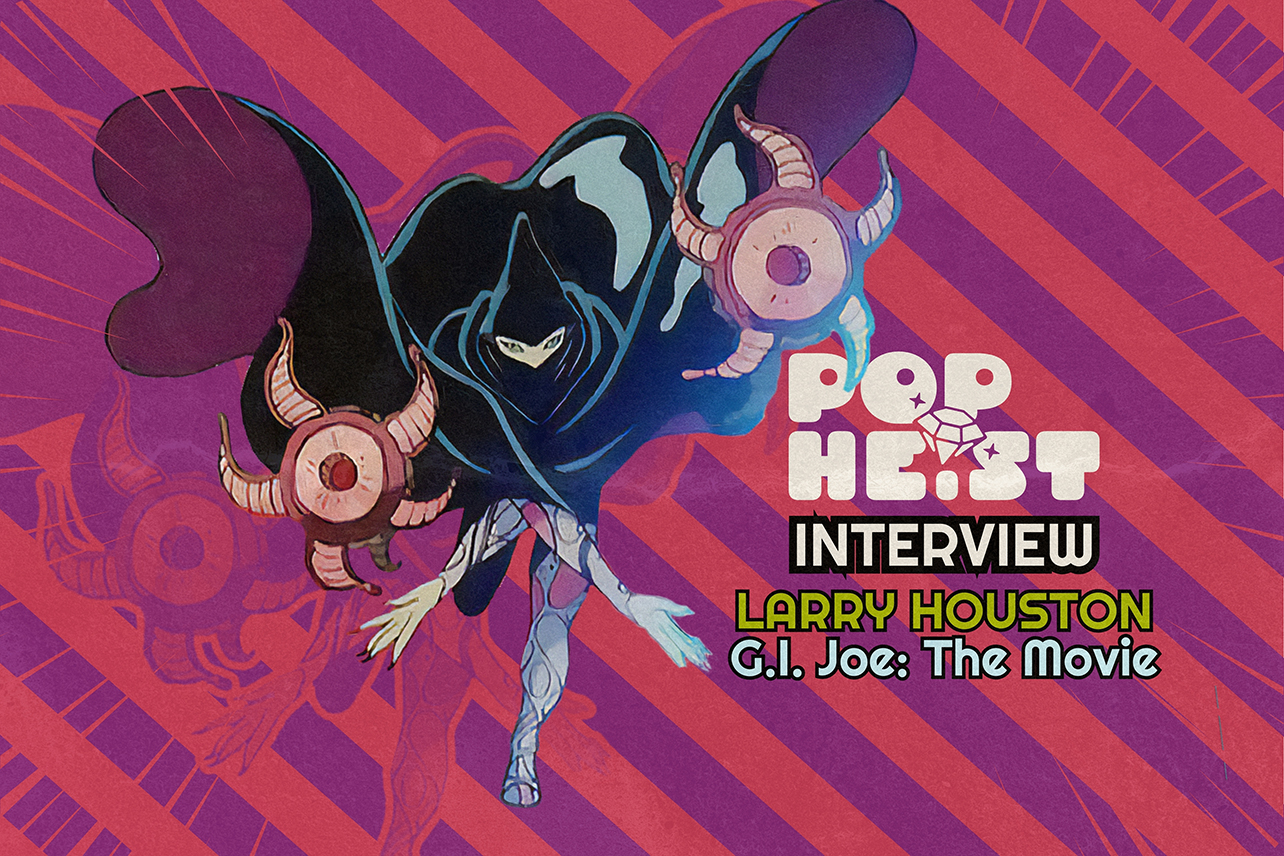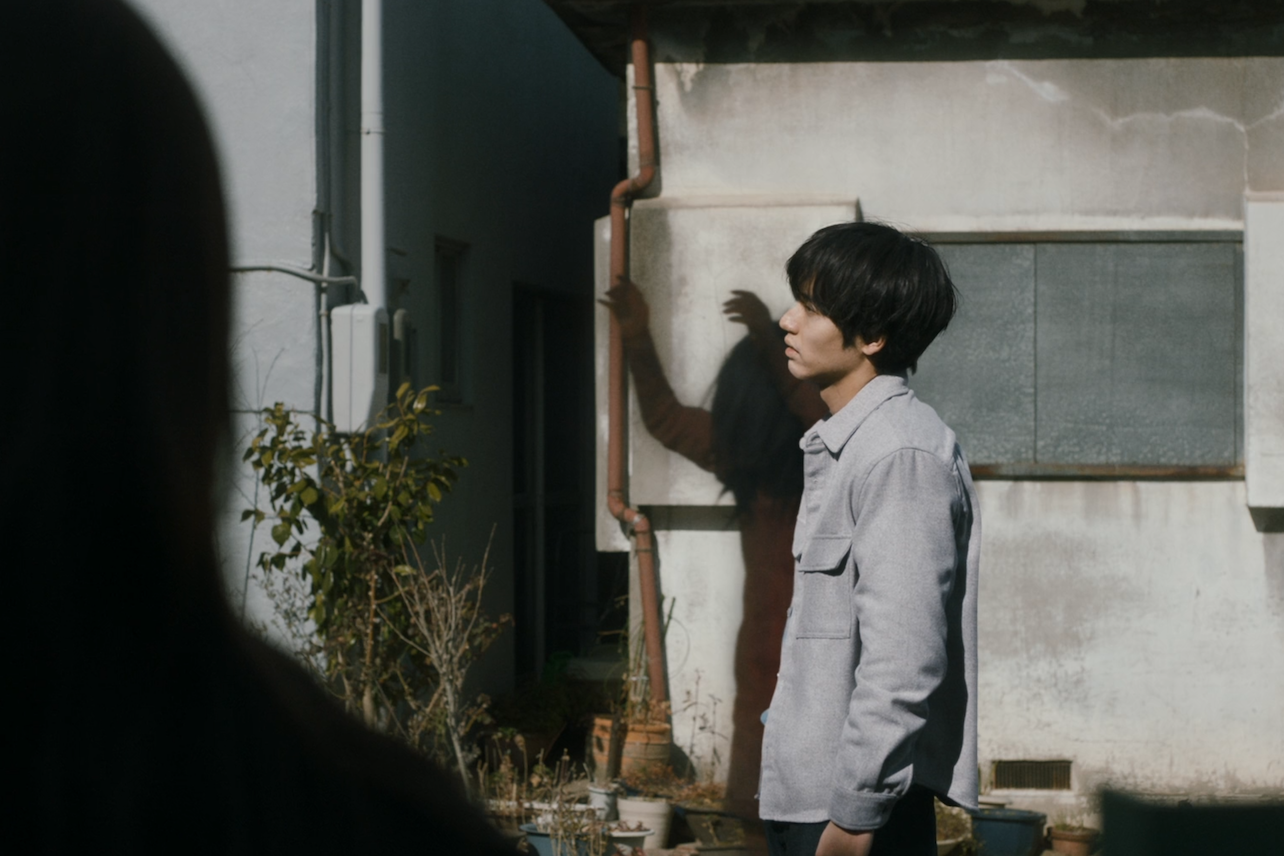Rosario
Writer: Alan Trezza
Director: Felipe Vargas
Cast: Emeraude Toubia, David Dastmalchian, José Zúñiga, Patricio Nicolás, Paul Ben-Victor, Guillermo García, Isabella Hoyos
There's a lot going for Rosario, the new horror film that marks the feature directorial debut of acclaimed short filmmaker Felipe Vargas. It's got a compelling lead, some extraordinarily creepy visuals, and wonderful, grimy production design all wrapped around a story that seeks to blend the best of folk-horror and modern "social horror" sensibilities that allow the creators to say something emotionally resonant about a particular kind of lived experience. It's also, I was pleased to discover, almost entirely a single-location story, which always makes for some exciting tension if it's handled properly.
The trouble is that, while nothing in this particular horror film is shoddy or ill-intentioned, Rosario often feels as troubled and confused as its title character ( played by Shadowhunters alum Emeraude Toubia). It's a movie in search of an identity, and it never quite settles on one, delivering an experience that's equal parts creepy and disjointed.
Rosario (Toubia) grew up surrounded by her heritage, raised by Mexican immigrants in Brooklyn who brought their traditions with them to their new home. But as an adult, much of that has left her. Now going by "Rose," she works in Manhattan as an investor and financial advisor, lives in a gorgeous apartment, and apart from regular visits with her father (José Zúñiga), she's basically left the old neighborhood and culture behind. At least until she gets a phone call.
It seems Rose's grandmother, Griselda (Constanza Gutierrez), has passed away in the same Brooklyn apartment Rose visited as a girl. Because Griselda is undocumented, someone needs to be there to lay claim to the body so she doesn't get "lost in the system" of the city's morgues. So, as a snowstorm blows into town, Rose heads for her abuela's former home and discovers a chamber of horrors from which she might never escape.
This is a very promising start. It gets more promising when Vargas and screenwriter Alan Trezza take Rose deeper into the bowels of her grandmother's apartment, with its grimy piles of dishes, creepy crawly bugs, and, finally, secret religious ephemera hidden on the other side of a closet. Griselda, you see, was a practitioner of the Afro-Latino religion Palo Mayombe, and it seems something she did in life has now passed on to her granddaughter in death. It's up to Rose to figure out what exactly is stalking her and then find a way to beat it, all while trapped in a blizzard-swept apartment building with a corpse in the next room.
Like I said: This is all great stuff, but the more Rosario dives into the mysteries of her grandmother's life, the more Rosario seems to struggle. Visually, it's always on point thanks to production designer Carlos Osorio and cinematographer Carmen Cabana, who plunge Rose into a world of altars, icons, and blood with a ferocity that helps keep the movie chugging even when the script starts to lag. If you love folk horror and all the artifacts that come with a religious practice like Palo, then you'll love what Rosario has to offer visually.
Toubia, who for much of the film is the only speaking character onscreen, also comes into this world with her game face on. She's ready to get dirty and dive headlong into horror tropes, makeup effects goop, and a story that's as much about one ordinary person's reaction to the extraordinary as it is about generational trauma. When it's working best, Rosario is a film about a young woman thrown headlong into a supernatural world she either spent her life ignoring or abandoning, and that world's response to her ignorance. In those moments, it's even got notes of the darkly comic, as Rose does everything from Google her grandmother's religion to reacting with encroaching monsters by simply closing a door and saying, "Nope."
This makes Rosario at its best both fun and immersive, with a thematic structure (Rose is literally trapped in her family's past) that really hits home. Unfortunately, it never lasts. The film swings wildly between bleak and comedic, poised and frenetic, and not in a way that adds to the horror. Its efforts to keep the action going by simply having Rose read portions of the internet aloud to no one but herself stall out the emotional allure of the story, and most importantly, we have a hard time understanding who Rose really is and what she really wants. There's a clear thematic throughline — a woman who left her heritage behind is literally haunted by said heritage — but there's not a clear character arc, leaving Rosario feeling like half a movie that, by the end, is so laden with twists and half-realized lore that you might be scratching your head over the plot, even if you get the point.
There's nothing grievously wrong here, to be clear. Rosario is not an outright failure, or poorly made, or half-assed. There is a lot to really love about it, but when paired with the things that don't work, all of those good elements sometimes lose their flavor in the film's larger cauldron of ideas and horror gags. You will, with luck, find something in here to enjoy, but the film can never quite get out of its own way, leaving you with a movie that's often as frustrating as it is frightening.
If you haven't already, consider supporting worker-owned media by subscribing to Pop Heist. We are ad-free and operating outside the algorithm, so all dollars go directly to paying the staff members and writers who make articles like this one possible.






